Chester Pierce Symposium: Well-being in the Face of Adversity
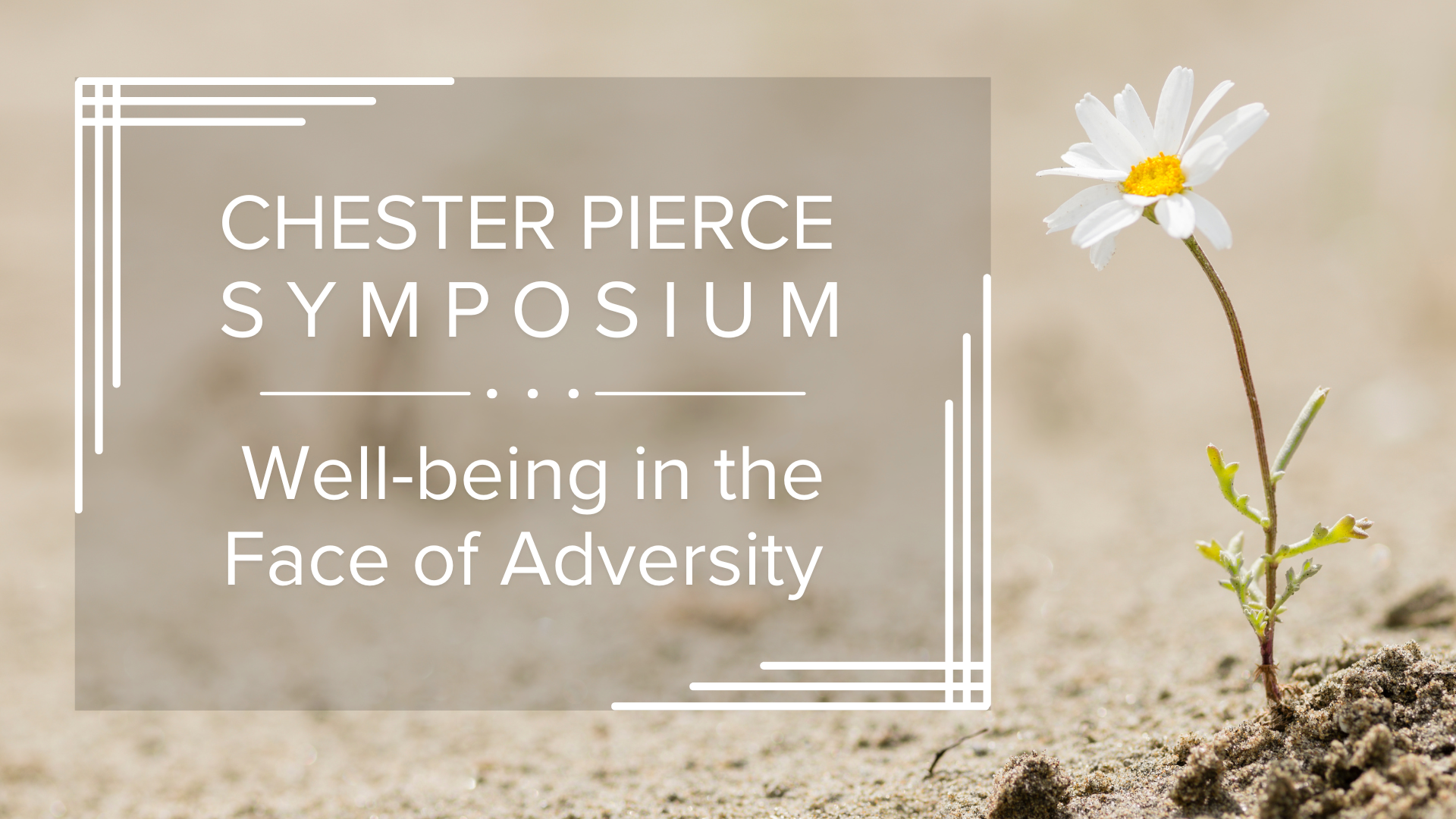
Overview
On November 12th 2024, the Center held the first annual Chester Pierce Symposium.
Dr. Chester Pierce left a lasting impact on the fields of psychiatry and social justice and is remembered as a pioneering advocate for mental health and civil rights. This symposium seeks to honor Dr. Pierce’s legacy in civil rights, social justice, and mental health, and emphasize his belief in the “lesser virtues” such as gentleness, kindness, cheerfulness, joy, and gratefulness.
Each year, the symposium will focus on a theme that addresses timely and relevant issues, aligning with current trends and concerns. In the current climate of social, political, and environmental challenges, it is imperative to discuss resilience, purpose, and positive well-being. Ongoing tensions and protests, deep-seated issues of racism, sexism, homophobia, Islamophobia, and anti-Semitism, and looming political uncertainties make it imperative to discuss resilience, purpose, and positive well-being.
The theme for the 2024 symposium is “Well-being in the Face of Adversity.” This year’s symposium is envisioned with the objective of exploring how individuals, institutions, and communities can foster resilience amidst adversity.
In addition to a keynote lecture, the symposium will also include three panels that will bring together leading academics, corporate and community leaders, and activists to address this objective, and engage in active discussions throughout the day.
Honoring Dr. Chester Pierce
Dr. Chester Pierce left a lasting impact on psychiatry and social justice and is remembered as a pioneering advocate for mental health and civil rights. He was a distinguished psychiatrist, researcher, and academician dedicated to addressing health disparities and promoting human rights.
Dr. Pierce was the first African American to graduate from the Massachusetts General Hospital Psychiatry Residency Training Program. He later became a professor of psychiatry at Harvard Medical School and of education at Harvard University. He served as the chief of psychiatry at Massachusetts General Hospital and as a psychiatrist at the Massachusetts Institute of Technology for almost 25 years.
He also served on the faculty of the Harvard T.H. Chan School of Public Health, educating for 14 years in the Department of Health and Social Behavior, today called the Department of Social and Behavioral Sciences. Dr. Pierce taught courses such as “Behavioral Sciences in International Perspective” which explored how behavioral science theories and practices could be adapted to health problems in human society in various contexts.
Dr. Pierce is best known for his groundbreaking work in child psychiatry, cultural psychiatry, and social justice. His legacy and wisdom inspire this symposium.
Symposium Agenda
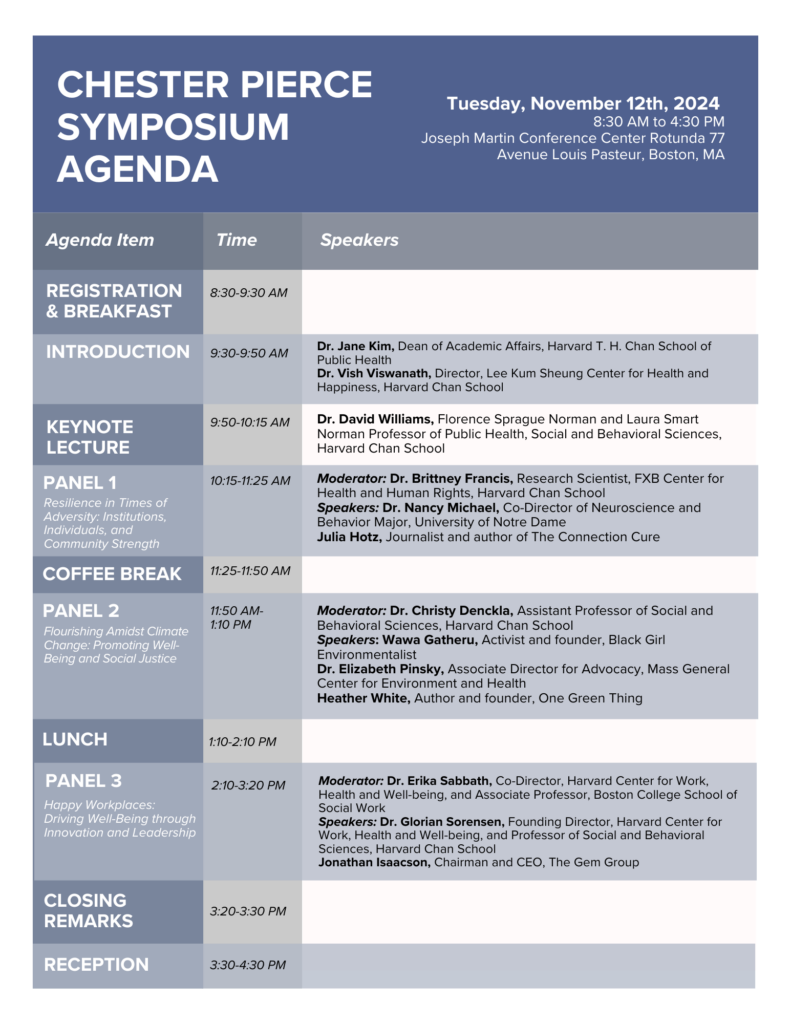
Keynote Speaker: Dr. David Williams
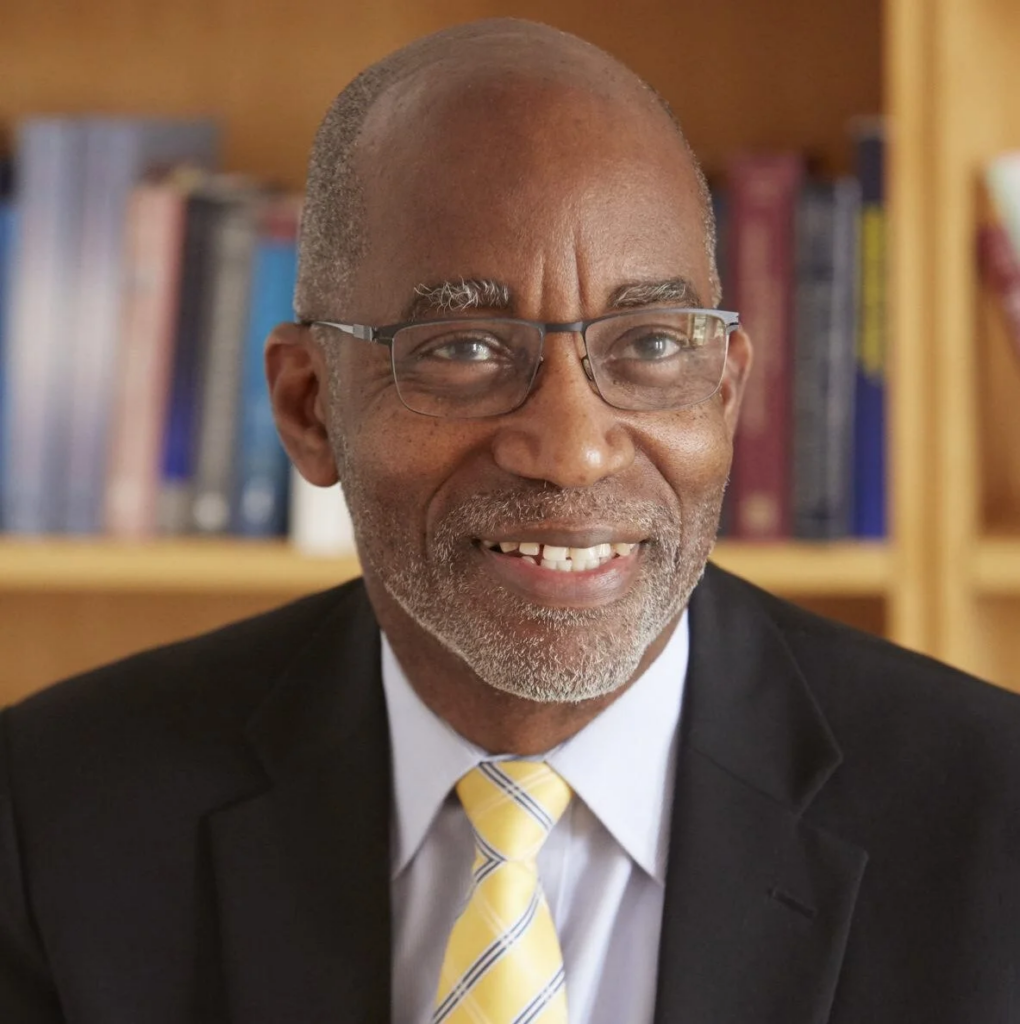
We are excited to announce that our 2024 Keynote Speaker will be Dr. David Williams. Dr. Williams is the Norman Professor of Public Health and Chair, Department of Social and Behavioral Sciences, at the Harvard T.H. Chan School of Public Health. He is also a Professor of African and African American Studies at Harvard University. His prior faculty appointments were at Yale University and the University of Michigan. An internationally recognized social scientist, his research has enhanced our understanding of the complex ways in which socioeconomic status, race, stress, racism, health behavior and religious involvement can affect health. He is the author of more than 500 scientific papers and the Everyday Discrimination Scale that he developed is the most widely used measure of discrimination in health studies. Dr. Williams is an elected member of the National Academy of Medicine, the American Academy of Arts and Sciences and the National Academy of Sciences. He has been ranked as the Most Cited Black Scholar in the Social Sciences, worldwide, and as one of the World’s Most Influential Scientific Minds.
Symposium Panels
Panel 1: Resilience in Times of Adversity: Institutions, Individuals, and Community Strength
This panel will explore how individuals, institutions, and communities can foster resilience amidst adversity. In a world where social tensions, political unrest, and systemic discrimination prevail, finding a sense of purpose and maintaining positivity can be challenging. This session will discuss the role of local actors such as city governments, religious leaders, and corporate leaders in promoting well-being in diverse community settings, providing a multifaceted view of resilience. The discussion will emphasize the importance of empathy, generosity, and institutional policies in fostering a supportive environment for all.
Furthermore, the session will address the intersectionality of social identities and how overlapping forms of discrimination and disadvantage can influence resilience. Panelists will explore how targeted interventions can support marginalized groups and foster a sense of belonging and empowerment. The role of mental health services, community engagement, and policy advocacy in building resilient communities will also be a key focus of the discussion.
Moderator
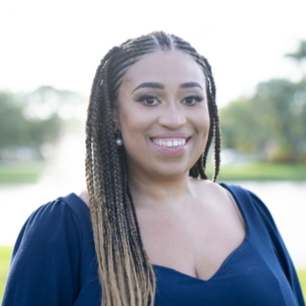 Dr. Brittney Francis
Dr. Brittney Francis
Dr. Brittney Francis (she/her) is a social epidemiologist whose research explores how various interpersonal, institutional and systemic factors (i.e. structural racism, capitalism, cisheteronormativity, etc.) impact the development, diagnosis, and management of maternal hypertension for Black women globally, one of the leading causes of maternal morbidity and mortality worldwide. Dr. Francis is currently a research scientist at the FXB Center for Health and Human Rights at Harvard T.H Chan School of Public Health. Policy and advocacy is a central component of her work in an effort to address what mechanisms can be used to shift power structures and to create more equitable distribution of resources and opportunities. She also uses her research to provide expert testimonies to state and federal legislatures, write op-eds and develop policy briefs on issues related to health equity.
Speakers
 Dr. Nancy Michael
Dr. Nancy Michael
Dr. Nancy Michael is the Director of Education and Co-Director of the Neuroscience and Behavior major at the University of Notre Dame. Her work uses a general community-capacity model to engage organizations in NEAR (neuroscience, epigenetics, adverse childhood experiences, and resilience) based strategies to support organizational and community trauma-informed efforts.
 Julia Hotz
Julia Hotz
Julia Hotz is a solutions-focused journalist based in New York. Her stories have appeared in The New York Times, WIRED, Scientific American, The Boston Globe, Time, and more. She helps other journalists report on the big new ideas changing the world at the Solutions Journalism Network. She recently published her first book, The Connection Cure.
Panel 2: Flourishing Amidst Climate Change: Promoting Well-Being and Social Justice
This panel will address the intersections of well-being, climate change, and social justice. As climate-related stress and adversity intensify, it is important to explore how communities foster social and mental well-being and positivity amidst challenges.
By integrating insights from a diverse range of disciplines—including public health, psychology, environmental science, sociology, urban planning—and wisdom from practitioners, this discussion aims to offer a holistic perspective on thriving in the face of climate change. The panel will provide strategies for building community cohesion, promoting psychological and social health, and encouraging adaptive behaviors that contribute to both environmental sustainability.
Additionally, the panel will address how systemic inequalities amplify the impacts of climate change on marginalized populations. By promoting inclusive and just approaches, this session aims to understand how communities can help members to not only survive but also flourish during the uncertainties of climate change.
Moderator
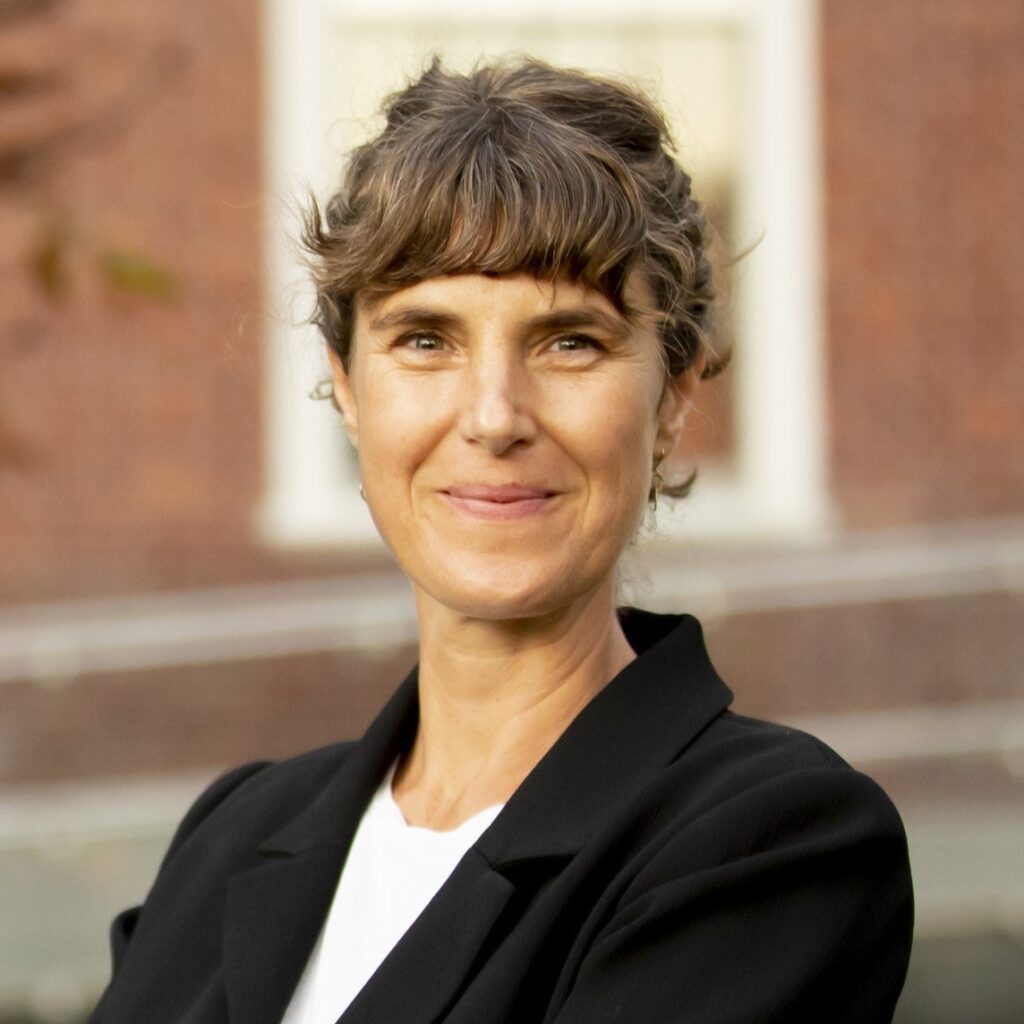
Dr. Christy Denckla
Dr. Christy A. Denckla is Assistant Professor of Social and Behavioral Sciences at the Harvard Chan School. She leads the Population Wellness Lab, where her research group is unraveling the social, psychological, biological, and environmental factors that shape experiences of, and responses to, loss and trauma. Drawing on large, longitudinal, population-based cohorts, her team investigates mechanisms that shape psychopathology after trauma, focusing on bereavement across the lifecourse. This work seeks to create a world where effective prevention and interventions at the population level support wellness from the cradle to the grave. She is a member of the faculty at Harvard Medical School, assistant professor in the Department of Psychiatry at Massachusetts General Hospital, and associate member of the Stanley Center for Psychiatric Research at the Broad Institute of Harvard and MIT.
Speakers
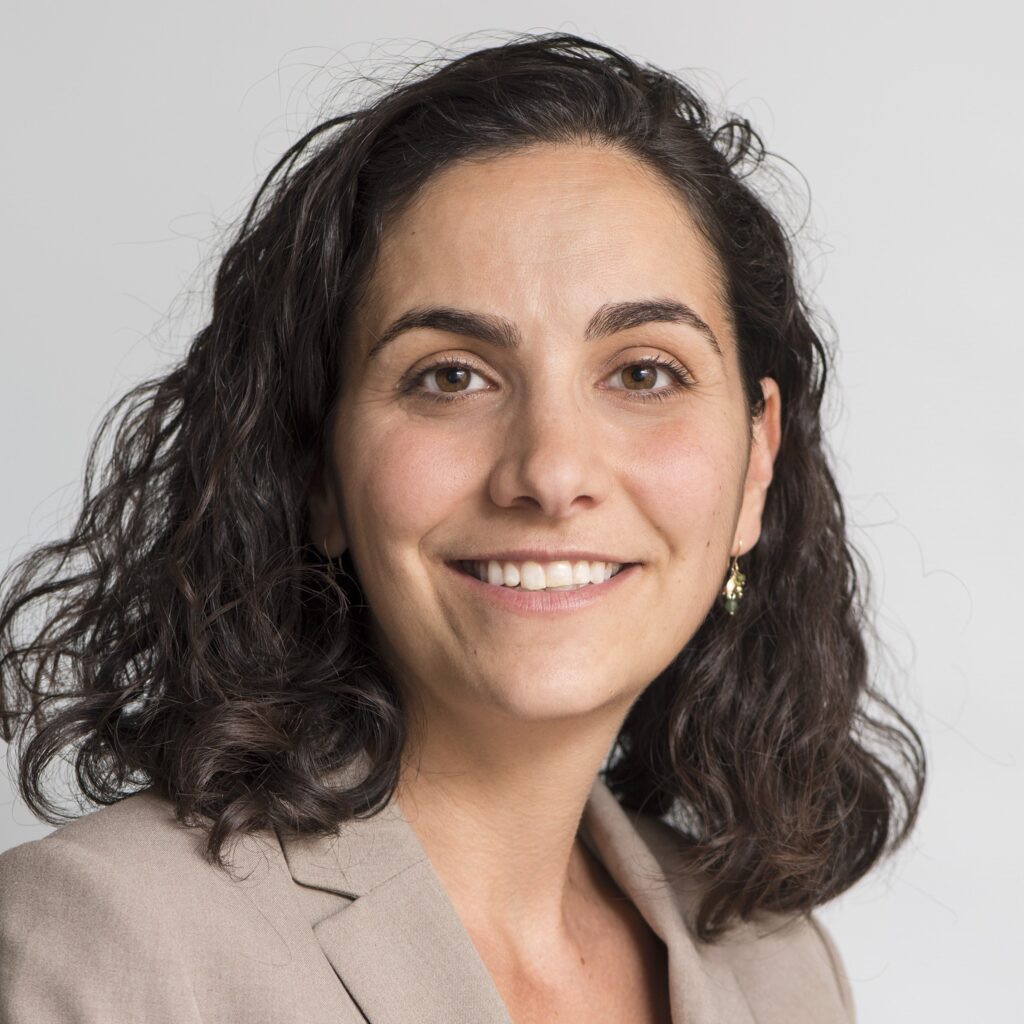 Dr. Elizabeth Pinsky
Dr. Elizabeth Pinsky
Dr. Elizabeth Pinsky is a child and adolescent psychiatrist and pediatrician at Massachusetts General Hospital, where she is the Associate Director of the Pediatric Psychiatry Consultation Service, and at Shriner’s Hospital for Children Boston. Her clinical interests focus on the intersection of child mental and physical health. Dr. Pinsky believes that climate change poses the most urgent threat to children at that intersection of physical and mental health, and that clinicians caring for children have a responsibility to advocate for a rapid and just transition off fossil fuels. She serves as the Associate Director for Advocacy at the MGH Center for Environment and Health and is also a founding member of Climate Code Blue, a Boston-area climate action group for physicians and other health professionals.
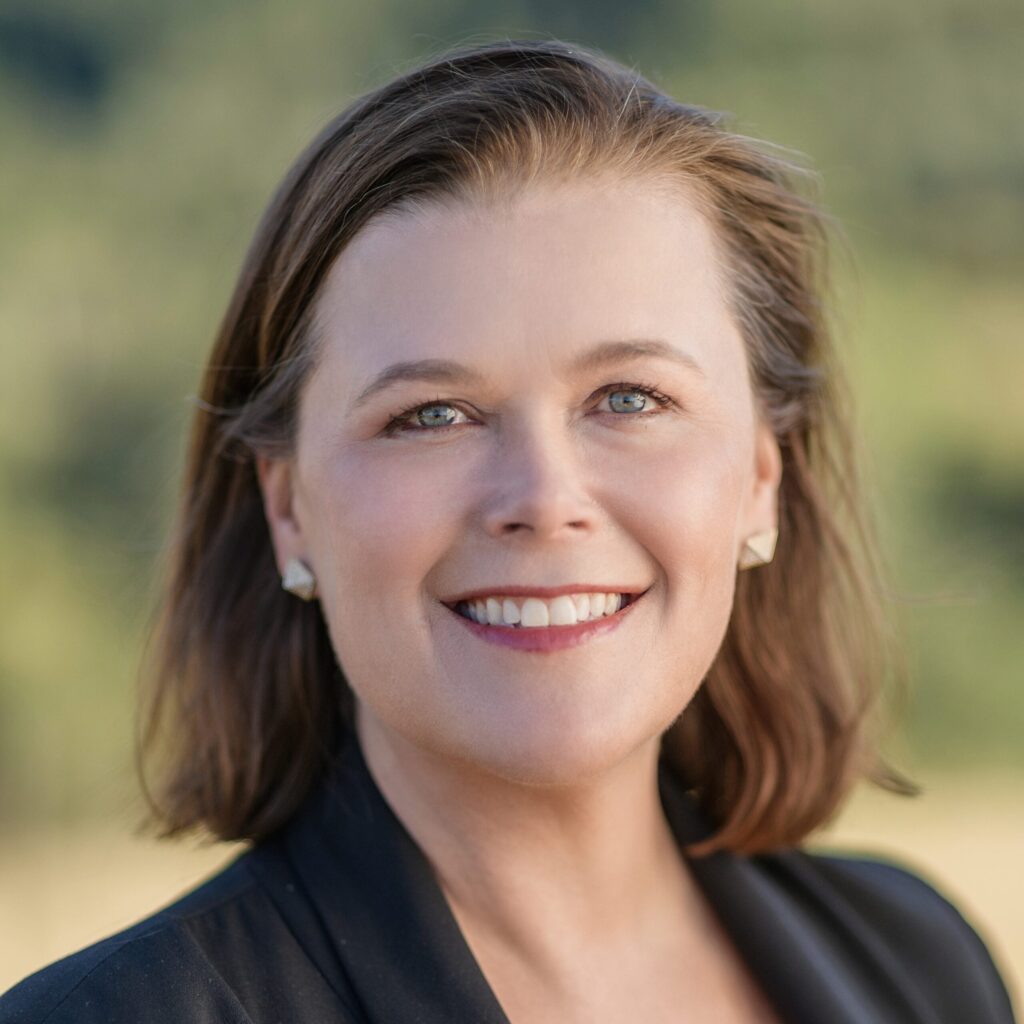 Heather White
Heather White
Heather White is a nationally recognized conservation and environmental policy expert and a frequent spokesperson in national media on climate, energy, and conservation issues. Heather is the founder & CEO of the nonprofit, OneGreenThing.org, and author of Eco-Anxiety: Saving Our Sanity, Our Kids, and Our Future (Harper Collins 2024), 60 Days to a Greener Life: Ease Eco-Anxiety Through Joyful Daily Action (Harper Collins, 2024) and One Green Thing: Discover Your Hidden Power to Help Save the Planet (Harper Collins, 2022). OneGreenThing is a nonprofit that tackles eco-anxiety through joyful daily action, inspiring culture change for policy solutions.
Panel 3: Happy in the Workplace: Cultivating Positive Work Experiences through Innovation and Leadership
This panel will focus on the dynamics of workplace well-being, addressing innovative practices for promoting a healthy and happy work environment. Since the workplace is where individuals spend many of their waking hours, it is important for companies and organizations to think critically about how to build a work environment that allows for worker flourishing. This conversation will bring together scholars and corporate leaders to discuss strategies for fostering an inclusive, supportive, and energizing workplace. Topics will include mental health initiatives, equitable workplace policies, and the role of leadership in driving cultural change. The panel will feature perspectives from corporate leaders, mental health professionals, and scholars, encompassing diverse experiences and insights into building a thriving workplace. Panelists will also be invited to talk about creative strategies for cultivating positive work experiences, especially after the pandemic shifted the work landscape.
Furthermore, in this panel, leadership will be examined through the lens of equity and innovation, focusing on how leaders can model practices of well-being in the workplace and collaborate with employees to embed well-being into organizational values.
By integrating these perspectives, the panel aims to inspire organizations to adopt a more proactive and inclusive approach to workplace well-being, ensuring that all employees can thrive in a positive and equitable environment.
Moderator
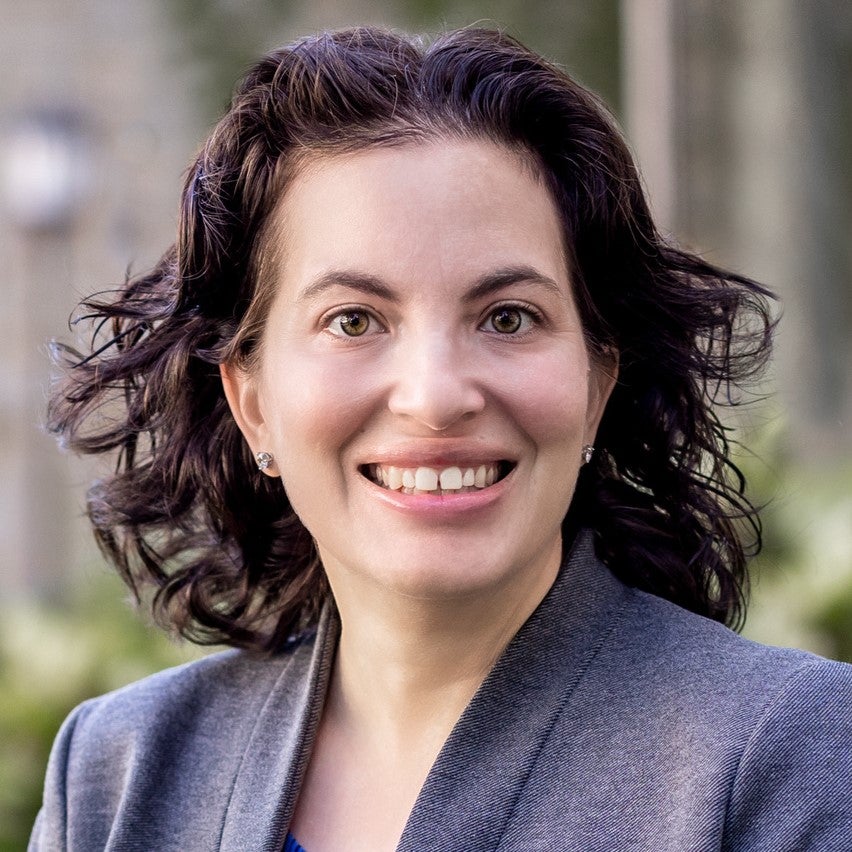 Dr. Erika Sabbath
Dr. Erika Sabbath
Erika L. Sabbath, ScD, is an Associate Professor at Boston College School of Social Work and Adjunct Associate Professor at Harvard T.H. Chan School of Public Health. A social and occupational epidemiologist, her research focuses on how workplace stressors and policy changes affect population health and disparities, especially among healthcare workers. She co-directs the Harvard Center for Work, Health, and Wellbeing and leads the Boston Hospital Workers Health Study, a major project involving over 27,000 healthcare workers. She also leads the Study of OB-GYNs in Post-Roe America, exploring the impact of the Dobbs decision on OB-GYNs’ mental health and well-being.
Speakers
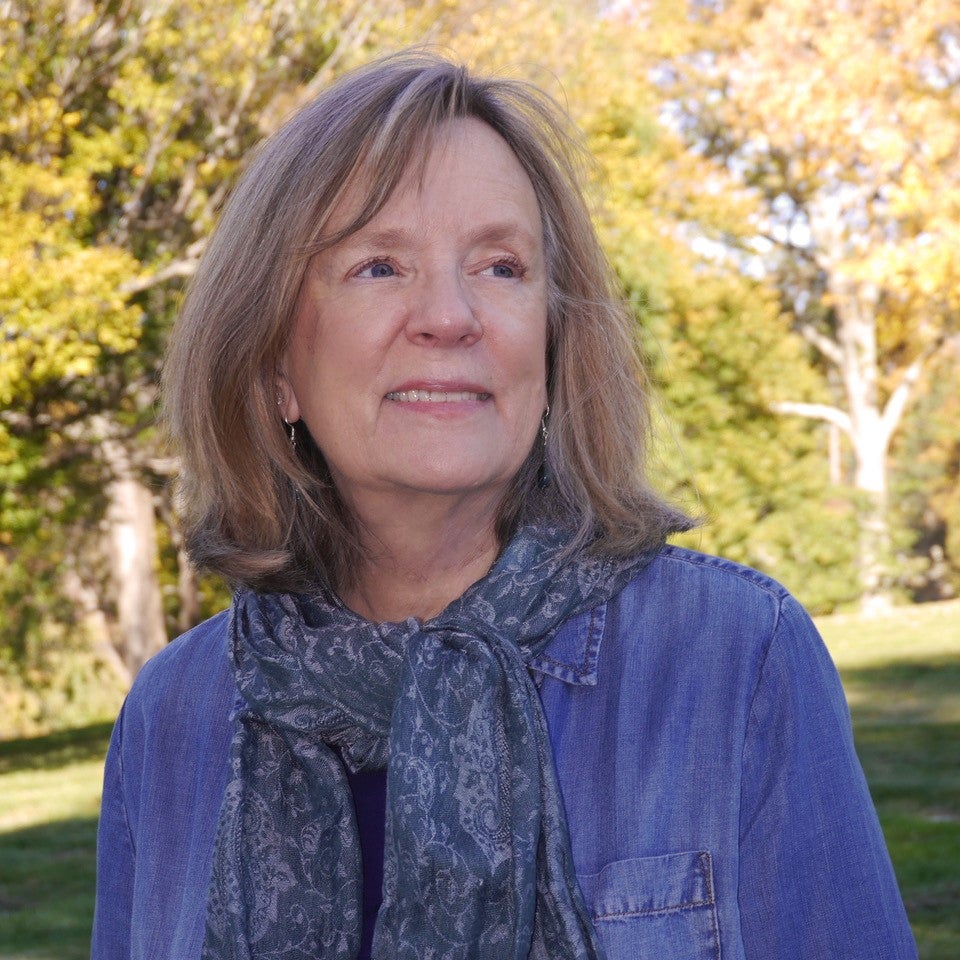 Dr. Glorian Sorensen
Dr. Glorian Sorensen
Dr. Glorian Sorensen, PhD, MPH, is a Research Professor of Social and Behavioral Sciences at the Harvard T.H. Chan School of Public Health and Dana-Farber Cancer Institute. She is also the Founding Director and Co-Principal Investigator (MPI) for the Harvard Center for Work, Health and Well-being, funded since 2007, by the National Institute for Occupational Safety and Health through its Total Worker Health® Program. Overall, the core of her research is randomized worksite-based studies that test the effectiveness of theory-driven interventions targeting changes in the work organization and environment as well as in workers’ safety and health behaviors. She brings a systems perspective to research on the work organization and environment aimed at promoting and protecting worker health, safety, and well-being.
 Jonathan Isaacson
Jonathan Isaacson
Jonathan Isaacson is the Chairman and CEO of The Gem Group, known as Gemline, a top supplier of bags, business accessories, and promotional products. Under his leadership, Gemline, based in Lawrence, MA, has become one of the largest industry players and received multiple awards, including Supplier of the Year in 2021. Isaacson serves on several advisory boards, including at the University of Michigan and Brigham and Women’s Hospital. He has held leadership roles in various organizations and was named Counselor Magazine’s Person of the Year in 2021. In 2022, he received the Making a Difference Award for community service.


